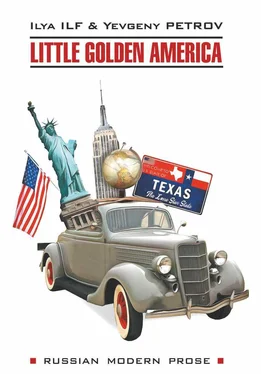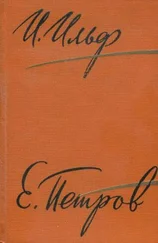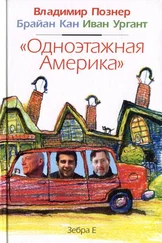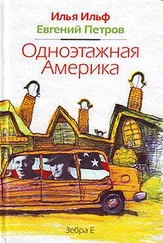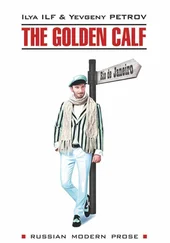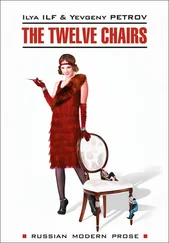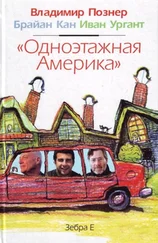The voices of the arrivals and of those meeting them, laughter and kisses, resounded hollowly throughout the shed, the bare structural parts of which made it seem rather like a shop where turbines were being manufactured.
We had not informed anyone of our impending arrival, and no one met us. We waited under our letters for the customs clerk. Finally he came. He was a calm and unhurried man. He was in no way affected by our having just crossed an ocean in order to show him our suitcases. He politely touched the upper layer of our belongings and did not look any further. Then he stuck out his tongue, a most ordinary, moist tongue, a tongue devoid of all gadgets whatsoever wetted the huge labels with it and pasted them on our travelling-bags.
When we finally freed ourselves it was already evening. A white taxi-cab with three gleaming lanterns on its roof, looking like an old-fashioned carriage, took us to the hotel. At first we were tormented by the thought that because of our inexperience we had got into the wrong taxi, into some antiquated vehicle, and that we were funny and provincial. But, having fearfully looked out the window, we saw that automobiles with just as silly little lamps as ours were going in all directions back and forth. We quieted down a little. Later we were told that these little lamps are placed on the roof, so that the taxi may be more noticeable among a million other automobiles.
For the same reason taxis in America are painted in the most garish colours – orange, canary, white. Our attempt to take a look at New York from an automobile failed. We drove through quite dark and dreary streets. From time to time something rumbled hellishly under our feet or something else thundered overhead. Whenever we stopped before the traffic lights the sides of the automobiles that stood beside us hid everything from view. The chauffeur turned back several times and asked again for the address. It seemed that he was somewhat anxious about our English. Now and then he would look at us patronizingly, and his face seemed to say: “Never mind, you won’t get lost! Nobody ever got lost in New York.” The thirty-two brick stories of our hotel merged with the rufous nocturnal sky.
While we were filling up short registration cards, two men of the hotel service stood lovingly over our baggage. On the neck of one of them hung a shining ring with the key of the room we had selected. The elevator lifted us up to the twenty-seventh story. This was the commodious and calm elevator of a hotel that was not very old and not very new, not very expensive and, to our regret, not very cheap.
We liked the room, but we did not pause to explore it. Hurry into the street, the city, the tumult! The curtains of the windows crackled under the fresh sea wind. We threw our overcoats on the couch, ran out into the narrow corridor covered with a patterned carpet, stepped into the elevator, and the elevator, clicking softly, flew down. We looked at each other significantly. After all, this really was a great event! For the first time in our lives we were about to walk in New York.
A thin, almost transparent national flag with stars and stripes hung over the entrance to our hotel. Only a short distance away stood the polished cube of the Hotel Waldorf-Astoria. In prospectuses it is called the best hotel in the world. The windows of the “best hotel in the world” sparkled blindingly, and over its entrance hung two national flags. Right on the sidewalk, by the wall of the building, lay tomorrow’s newspapers. Passers-by bent down, took a New York Times or Herald Tribune and placed two cents on the ground beside the newspapers. The newsdealer had gone somewhere. The newspapers were held down with a broken piece of brick, quite as it is done in Moscow by our old women news vendors as they sit in their plywood kiosks. Cylindrical garbage cans stood at each corner of the street crossings. A considerable flame spouted out of one of the cans. Someone had evidently thrown a lighted cigarette-end there, and so the New York refuse, which consists mostly of newspapers, caught fire. An alarming red light illumined the polished walls of the Waldorf-Astoria. Passers-by smiled and dropped remarks as they walked by. A policeman, his face set, was already moving toward the eventful spot. Having decided that our hotel was in no danger of catching fire, we went on.
At once a slight misfortune befell us. We thought we would walk slowly, looking around attentively in order to study, to observe, to take in, and so forth. But New York is not one of those cities where people move slowly. The people who passed us did not walk, they ran. And so we, too, ran. From that moment on we could not stop. We spent a whole month in New York, and throughout that time we were constantly racing somewhere at top-speed. Simultaneously, we acquired such a businesslike and preoccupied air that John Pierpont Morgan, Jr., himself might have envied us. At our rate of speed he would have earned approximately sixty million dollars during that month. We earned somewhat less.
In a word, we started off at a trot. We sped by signs on which in lights were outlined the words: “Cafeteria” or “United Cigars” or “Drugs – Soda” or something else equally enticing yet so far utterly incomprehensible. Thus we ran to Forty-second Street, and there we stopped.
In the store windows of Forty-second Street winter was in full swing. In one window stood seven elegant wax ladies with silver faces. They all wore wonderful astrakhan fur coats, and regarded each other quizzically. In another window stood twelve ladies in sports costumes, leaning on ski poles. Their eyes were blue, their lips red, their ears pink. In other windows stood young mannikins with grey hair, or dapper gentlemen in inexpensive, and hence suspiciously resplendent, suits. But we were really not impressed by all this store munificence. It was something else that astonished us.
In all the large cities of the world one can always find a place where people look at the moon through a telescope. Here, on Forty-second Street, we also found a telescope. But it was mounted on an automobile.The telescope pointed at the sky. In charge of it was an ordinary mortal, just like the men at the telescopes in Athens, in Naples, or in Odessa. And his was the joyless manner peculiar to all exploiters of street telescopes throughout the world.
The moon showed itself in the interstice between two sixty-storied buildings. However, the curious onlooker, applying himself to the tube, gazed not at the moon but considerably higher: he looked at the top of the Empire State Building and its hundred and two stories. In the light of the moon, the steel eminence of the Empire State seemed to be covered with snow. The heart turned cold at the sight of this chaste and noble building glistening like a sliver of artificial ice. We stood there long, silently gazing up. The skyscrapers of New York make one proud of all the people of science and of labour who build these splendid edifices.
The news vendors roared hoarsely. The earth trembled underfoot, and through the grates in the sidewalk came a sudden gust of heat as if from an engine-room. That was because down there passed a train of the New York metro – the subway, as it is called here.
Through vents, placed in the pavement and covered with round metallic covers, steam broke out. For a long time we could not understand where that steam came from. The red lights of the advertisements cast an operatic light upon it. Almost at any moment one expected (he vents to open, Mephistopheles spring out of one of them, and, after clearing his throat, begin to sing in deep bass, right out of Faust : “A sword at my side, on my hat a gay feather; a cloak o’er my shoulder – and altogether, why, got up quite in the fashion!”
We again rushed forward, deafened by the cries of the news vendors. They shout with such desperation that, to use Leskov’s expression, it is afterwards necessary for a whole week to dig the voice out with a shovel.
Читать дальше
